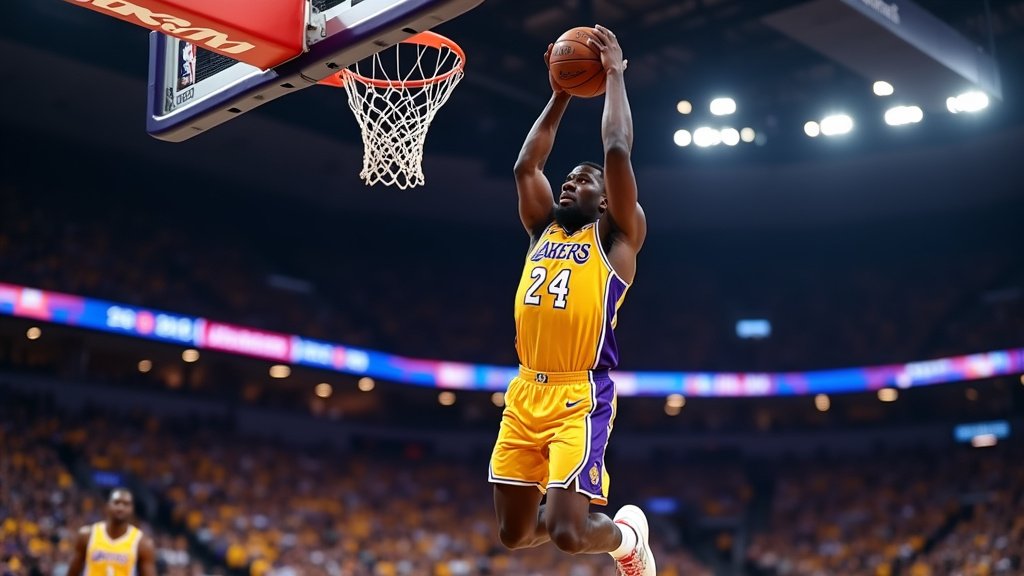The Los Angeles Lakers, one of the most storied franchises in professional sports, are set to transition into a new era following the decision by the venerable Buss family to sell a controlling stake in the team. This landmark transaction, which values the team at an estimated $10 billion, marks the conclusion of nearly a half-century of the Lakers being under the stewardship of the Buss family, an era that began in 1979 under the leadership of the late, often eccentric, Jerry Buss and continued through his children.
A Historic Transaction Confirmed
The acquisition of the controlling interest by businessman Mark Walter has been described as a stunning sports coup, signaling a monumental shift in the ownership landscape of the National Basketball Association (NBA). Confirmation of the agreement was provided to The Associated Press by a person with direct knowledge of the deal on Wednesday, June 18, 2025. News of the sale subsequently broke and was widely reported on Thursday, June 19, 2025, sending ripples through the sports world and the financial markets. While specific terms beyond the reported valuation and controlling stake were not immediately disclosed, the scale of the transaction underscores the immense value now placed on elite global sports properties like the Lakers.
The End of the Buss Era
The sale brings an end to what was the longest active ownership tenure in the NBA. The Buss family’s connection to the Lakers began in 1979 when Jerry Buss purchased the team, ushering in a period characterized by unprecedented success, star power, and a vibrant connection with the city of Los Angeles. Under his guidance, and later that of his children, the franchise secured multiple championships and cemented its status as a global brand.
Jerry Buss, known for his flair and business acumen, built a lasting legacy that extended far beyond the basketball court, influencing the very culture of the NBA. Following his passing, control of the team eventually transitioned primarily to his daughter, Jeanie Buss. A longtime employee of the organization and one of Jerry Buss’s seven children, Jeanie Buss has been a central figure in the team’s recent history. The sale of the controlling stake is expected to result in significant financial gain for the Buss family members, with Jeanie Buss anticipated to become extraordinarily wealthy as a direct consequence of the transaction. The divestment represents a strategic decision by the family to capitalize on the franchise’s soaring valuation, estimated now at an eye-watering $10 billion.
The Significance of the $10 Billion Valuation
The estimated $10 billion valuation is not merely a number; it is a powerful indicator of the current economic climate surrounding top-tier sports teams. This figure places the Lakers among the most valuable sports franchises globally, rivaling even the valuations seen in major international football clubs or other NFL teams. The valuation reflects a combination of factors: the Lakers’ immense brand recognition, their massive global fan base, lucrative broadcasting rights deals, the profitability of their arena (the Crypto.com Arena), and the overall upward trajectory of the NBA’s economic model.
Mark Walter, the principal owner of the Los Angeles Dodgers and a co-founder of Guggenheim Partners, is now poised to become the key decision-maker for the Lakers. His background in finance and baseball ownership brings a new dynamic to the franchise’s leadership. The description of his acquisition as a \”stunning sports coup\” suggests that the deal may have involved intricate negotiations or perhaps outmaneuvered other potential suitors, highlighting Walter’s strategic prowess in the high-stakes world of professional sports ownership.
Looking Ahead
For the Los Angeles Lakers and their loyal fanbase, the change in ownership raises questions about the future direction of the team. While the core operations and management structure may see a period of transition, the goal remains consistent: competing for NBA championships. The infusion of new ownership, particularly one with significant experience in managing successful sports organizations like the Dodgers, could potentially lead to new investments in facilities, technology, or personnel.
The sale also has broader implications for the NBA, potentially setting a new benchmark for franchise valuations and perhaps influencing the market for other teams that may consider ownership changes in the future. The sheer scale of the $10 billion figure solidifies basketball’s position as a premier global sport with extraordinary economic potential.
In conclusion, the sale of a controlling stake in the Los Angeles Lakers marks a profound moment in the history of both the franchise and the NBA. It closes the chapter on the nearly half-century legacy of the Buss family’s stewardship, a period defined by success and cultural impact. As Mark Walter assumes control following this unprecedented $10 billion transaction, the Lakers embark on a new chapter, carrying with them the weight of expectation that comes with being one of the world’s most iconic sports teams.





